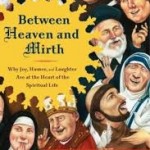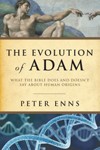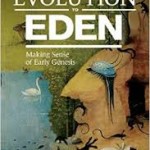 Just this past week, the Economist ran a story on the evolution controversy in evangelicalism. I can’t say I saw that one coming.
Just this past week, the Economist ran a story on the evolution controversy in evangelicalism. I can’t say I saw that one coming.
A reporter went to the Evangelical Theological Society meeting in Baltimore and sat in on the session with the authors of the recent publication of Four Views on the Historical Adam (part of Zondervan’s Counterpoints series–see Inerrancy volume here).
The piece is entitled “All about Adam: The Furious–and Political–Debate about Human Origins.”
Political? Ya think?
Here are quotes to get a feel for the piece.
The glue that underpins such faith [biblical literalism] is the principle of Biblical inerrancy—a certainty that the Scriptures are infallibly and unchangingly true.
Some discussions [at the ETS meeting] were a trifle arcane, it is true, with sharp exchanges about ancient Hebrew cosmology and the degree to which the Book of Genesis draws on Mesopotamian creation and flood motifs. But a bang-up-to-date, and distinctly political, dispute hummed along underneath the scholarly sparring: what to do about core principles threatened by new facts. Evangelical Christianity is being shaken not only by the irreverence of the young but also by new discoveries flowing from genetic science.
Recent research (notably cross-species comparisons of gene sequences rendered non-functional by mutations) has greatly strengthened the case that humans and chimpanzees share a common ancestor. A creationist speaker in Baltimore shrugged such discoveries off, declaring that “science changes, but the word of God never changes.”
A few weeks ago, I commented briefly on the book itself, and I remain discouraged on two fronts: (1) the subtle maneuvers often made in evangelicalism to hold together science, ancient Near East, and a “historical Adam” seem desperate to me; (2) some carry on by essentially ignoring contrary evidence entirely and persist in presenting models of Christianity that can only operate in a climate of intellectual isolation.
The value of the book, for me, is largely centered on Denis Lamoureux’s essay (“No Historical Adam: Evolutionary Creation View”) and Greg Boyd’s pastoral reflection (“Whether or Not There Was a Historical Adam, Out Faith is Secure”).
Concerning the other authors, I respect John Walton and his work, but I find his “archetypal view” difficult to track with. John Collins’s old-earth historical Adam view remains idiosyncratic for me, though I applaud his attempts to bring the Adam issue before a conservative audience.
Most discouraging for me was to read Phil Ryken’s (president of Wheaton College) pastoral reflection, where he patiently outlines 7 reasons why “We Cannot Understand the World or Our Faith without a Real, Historical Adam.” Though his candor is to be noted, it is hard to hear this from the president of a (if not the) flagship evangelical college with a reputation for academic rigor and integrity. I am also not sure what is “pastoral” about creating cognitive dissonance, which, as the author of the Economist piece points out, has young people turning away from the church because it is perceived to be “anti-science.” Protecting theological boundaries and showing pastoral concern are not the same thing.
At any rate, the article is worth the read. I would have liked to have attended the session, but my own session on inerrancy ran parallel to it.











